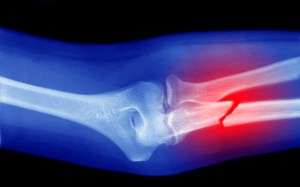House Democrats announced a new stimulus check bill on Tuesday in the hopes of reigniting negotiations with Republicans. The bill has already been reported on, but some new details are emerging. While the big items are familiar, the differences from the last proposal could be the deciding factor in gaining bipartisan support and passing the bill at last.
Democrats and Republicans have been trying to negotiate a new stimulus package since May, divided not just by party lines but between the Democrat-controlled House of Representatives, the Republican-controlled United States Senate and the Republican White House. House Speaker Nancy Pelosi reportedly hopes that this new proposal will get things started on the right foot with the Trump administration, and U.S. Treasury Secretary Steven Mnuchin has said that he is willing to negotiate with her on behalf of the White House. Whether it will be enough to get a bill passed remains to be seen.
Videos by PopCulture.com
The new proposal costs a total of about $2.2 trillion — the same price as the first major stimulus package passed back in March. This is a big drop from the House’s $3.4 trillion HEROES Act back in May, but still far higher than the Senate’s $1 trillion HEALS Act in July.
Democrats hope to make the overall cost of the bill the center of the negotiation. They want Republicans to meet them in the middle at this price, while Republicans want to pass smaller bills one at a time at smaller costs. Pelosi believes that if she agrees to one small bill, Republicans will block future bills, and she will lose any bargaining power whatsoever.
Analysts are split over Pelosi’s new bill announced on Tuesday, and whether Republicans can be made to agree to its contents. Here is a look at the major items in this legislation.
$1,200 Stimulus Check

The new bill includes a one-time stimulus check based on income for every eligible American taxpayer, very similar to the one passed back in March. It will be worth $1,200 for any American with an annual gross income of $75,000 per year or less and will decrease incrementally from there up to an AGI of $99,000. The amounts are doubled for couples who file joint taxes, and there is a slightly different breakdown for “Head of Household” tax filers.
This is one of the few items where Democrats and Republicans are nearly agreed. The major difference between their proposals is that in Pelosi’s HEROES Act, taxpayers would get an additional $1,200 for any dependents that they claimed, up to a maximum of three dependents per taxpayer. In Senate Majority Leader Mitch McConnell’s HEALS Act, they would get $500 for each dependent, with no limit.
In either case, the rule that left adult dependents out of the first stimulus check would be amended this time around, so college students or elderly family members claimed as dependents would still be eligible. Analysts believe that this would be the easiest item for Democrats and Republicans to agree on.
Weekly Unemployment Aid

A more divisive issue is the federal unemployment aid, which provided an extra $600 per week to eligible Americans claiming unemployment under the CARES Act. That program expired on July 31, and while Democrats wanted to renew it as is, Republicans wanted to drop the amount to $200 per week.
Pelosi’s new bill includes $600 per week unemployment aid, according to a report by Forbes, but details on the plan are scarce. Chances are that this would be an item Republicans would want to negotiate over, assuming they can be called back to the table after a months-long stalemate.
State, Local & Tribal Government Aid

The new bill also reportedly includes $436 billion in federal aid for state and local governments, as well as Native American tribal governments. This is considerably higher than the amount allocated in the CARES Act — about $339.8 billion overall — but the increase may be related to the unexpectedly long wait between stimulus packages.
COVID-19 Testing & Tracing Aid

The bill will provide $75 billion for COVID-19 testing and tracing, which the Center for Disease Control and Prevention maintains are essential for slowing the spread of the virus. Contact tracing remains a weakpoint in the U.S. as compared to other countries, according to a report by CNBC.
Industry Relief

Pelosi’s new bill makes two major allocations for specific industries in the U.S.: $120 billion for the restaurant industry, and $25 billion for the airline industry as well. This money is intended to keep workers in these industries paid, according to a report by The Hill, since conducting in-person business is nearly impossible until the virus is under control. Still, many critics point to these as items easy to cut, believing that individual Americans should get financial relief, not large businesses.
Education Funding

The new stimulus package would provide $225 billion in funding for schools and education — a huge drop from the HEROES Act, which gave nearly $900 billion in this area. At the height of negotiations, this was another area where Republicans and Democrats seemed to be agreed, according to a report by Business Insider. However, this new offer is much higher than what they discussed before.
U.S. Post Office Funding

Finally, the bill includes another $15 billion in funding for the U.S. Postal Service, which is struggling more than ever under the weight of increased voting by mail in the 2020 presidential election. The bill also sets aside $3.6 billion for the election itself, handing that money over to states in order to ensure they can safely and efficiently run their polling stations.
Other, smaller items in the bill include new workplace safety protocols, subsidization of health insurance for the unemployed and new banking rules for the cannabis industry in states where it is legal. However, these and all the other items listed above are up for negotiation, should Republicans agree to sit down with Democrats to discuss this new bill. Chances are that few of these provisions would pass without at least a little revision.









